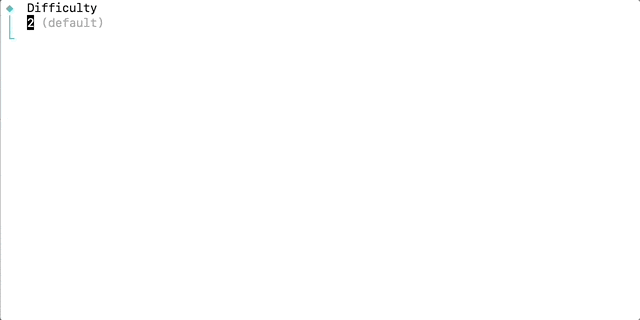38 releases (stable)
| 1.1.2 | Jan 29, 2025 |
|---|---|
| 1.0.29 | Dec 27, 2024 |
| 1.0.26 | Oct 21, 2024 |
| 1.0.25 | Jul 31, 2024 |
| 0.1.7 | Nov 4, 2023 |
#255 in #email
97 downloads per month
29KB
397 lines
Blockchain
An interface for interacting with a blockchain.
Reference implementation
Documentation
For more in-depth details, please refer to the full documentation.
If you encounter any issues or have questions that are not addressed in the documentation, feel free to submit an issue.
Examples
Explore the capabilities of this blockchain implementation through a set of examples:
Usage
use blockchain::{ BlockchainError, ChainBuilder };
fn main() -> Result<(), BlockchainError> {
// Initialise a new blockchain
let mut chain = match ChainBuilder::default()
.difficulty(2.0)
.reward(100.0)
.fee(0.01)
.build()
{
Ok(chain) => chain,
Err(e) => return Err(BlockchainError::InvalidConfiguration),
};
let sender = chain.create_wallet("sender@mail.com");
let receiver = chain.create_wallet("receiver@mail.com");
// Add a transaction
chain.add_transaction(sender, receiver, 1.25)?;
// Get a transaction
let transaction = chain.get_transaction("6e8c5dc01145016e5a979683ba7e13bafaf85e765490aa33c0bba1f41cf581ed")?;
println!("📦 Transaction: {:?}", transaction);
Ok(())
}
Features
new(difficulty, reward, fee): Initialize a new blockchain with the specified parameters.get_transactions(page, size): Get a list of current transactions in the blockchain using pagination details.get_transaction(hash): Get a transaction by its hash.add_transaction(from, to, amount): Add a new transaction to the blockchain.validate_transaction(from, amount): Validate a new transaction to the blockchain.create_wallet(email): Create a new wallet with a unique email and an initial balance.get_wallet_balance(address): Get a wallet's balance based on its address.get_wallet_transactions(address, page, size): Get a wallet's transaction history based on its address and using pagination details.get_last_hash(): Get the hash of the last block in the blockchain.update_difficulty(difficulty): Update the mining difficulty of the blockchain.update_reward(reward): Update the block reward.update_fee(fee): Update the transaction fee.generate_new_block(): Generate a new block and append it to the blockchain.get_merkle(transactions): Calculate the Merkle root hash for a list of transactions.proof_of_work(header): Perform the proof-of-work process to mine a block.hash(item): Calculate the SHA-256 hash of a serializable item.
Safety
This crate uses #![forbid(unsafe_code)] to ensure everything is implemented in 100% safe Rust.
Contributing
Contributions from the community are always welcome! Here are some ways you can contribute:
Reporting Bugs
If you encounter any bugs, please submit an issue with detailed information about the problem and steps to reproduce it.
Feature Requests
If you have ideas for new features, feel free to submit an issue with a detailed description of the feature and its potential use cases.
Build
To build the project, run:
cargo build
Test
To run the tests, use:
cargo test
Lint
Run clippy to lint the code:
cargo clippy --all-targets --all-features --no-deps -- -D warnings
Format
Run rustfmt to format the code:
cargo fmt
Documentation
Generate documentation in HTML format:
cargo doc --open
Dependencies
~3.5–4.5MB
~92K SLoC
